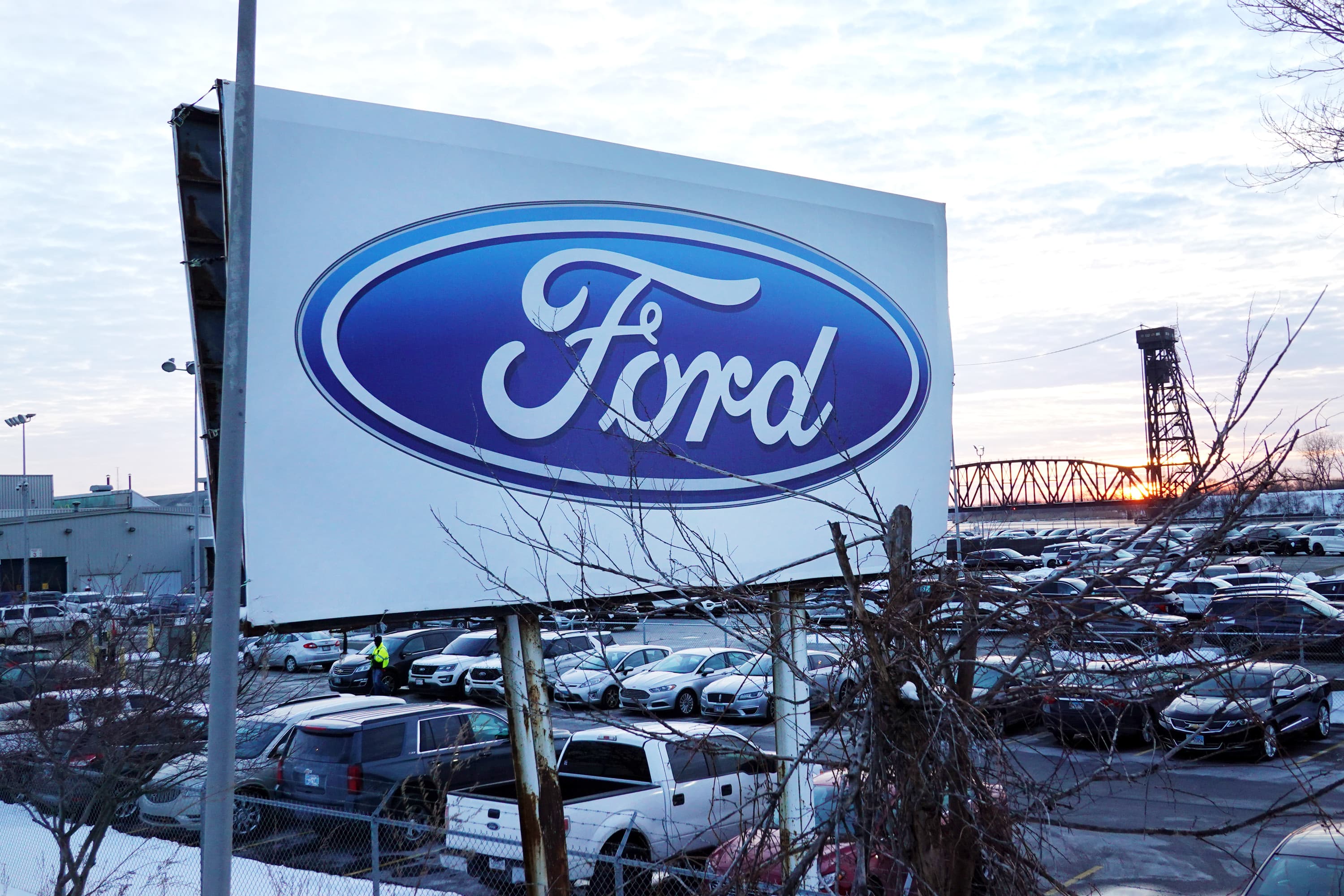
The Ford company logo is displayed on a sign outside of the Chicago Assembly Plant on February 03, 2021 in Chicago, Illinois.
Scott Olson | Getty Images
DETROIT – Ford Motor plans to repurchase up to $5 billion of its high-yield bonds as part of a wider plan to restructure its balance sheet that became more bloated with emergency borrowings when automakers had to shutter operations last year.
Ford is buying back much of the $8 billion in bonds the company issued at the start the coronavirus pandemic at lofty yields of between 8.5% and 9.625%, according to Ford Treasurer Dave Webb. It’s also repurchasing some older bonds at similarly high yields in hopes of upgrading its credit rating, which lost its investment-grade status in March 2020.
Ford expects to fund the buyback with cash on hand, which totaled about $31 billion to end the third quarter. Webb said a $1 billion or more “green” bond could follow as part of a wider effort to “aggressively restructure” its balance sheet under its Ford+ turnaround plan. He said the company is looking to issue 10-year bonds that pay between 3.5% and 4.5%.
“We think it’s the time to aggressively restructure the balance sheet, lower our interest costs, and really clear the decks for 2022 and beyond. That’s really what we’re looking to accomplish here,” Webb told reporters during a call.
The repurchase was announced as part of Ford’s new “sustainable financing framework,” which the automaker is calling a first of its kind for the North American automotive industry. It will focus on vehicle electrification and other environmental and social areas such as clean manufacturing and community revitalization.
It’s a shift for Ford, including its Ford Credit financial subsidiary, as environmental, social and governance, or ESG, investing becomes more popular and a consideration of investors.
The bond repurchase and new framework are aimed at helping to finance the Ford+ plan, including investing tens of billions of dollars into electric and autonomous vehicle technologies.
Webb declined to speculate on when the automaker expects to return to investment grade. He said the company is “intense on getting there as quickly as we possibly can.”
“The actions that we’re taking here on the balance sheet further support that effort and intent. We think they, certainly, should be viewed as a credit positive,” Webb said.




